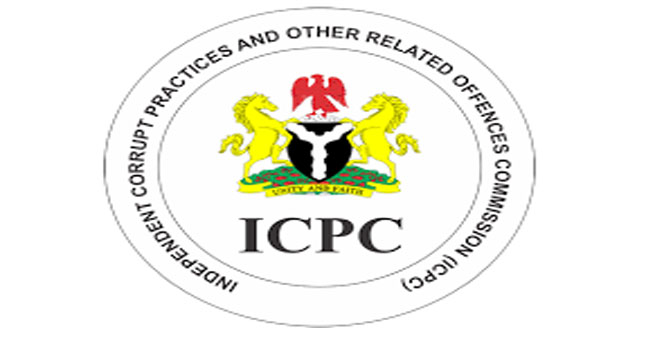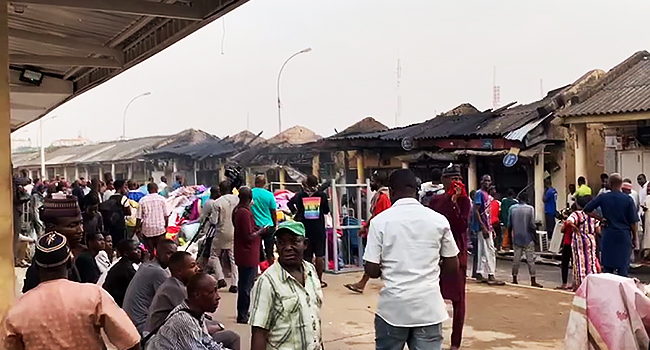
The Independent Corrupt Practices and Other Related Offences Commission (ICPC) says it recently recovered over 300 houses from two civil servants in the nation’s capital, Abuja.
Making the disclosure on Thursday, the Chairman of the ICPC, Professor Bolaji Owasanoye, went on to expose how real estate is often used as cover for money laundering and Illicit Financial Flows (IFFs).
Owasanoye, who spoke at a public hearing on real estate organized by the House of Representatives Ad-Hoc Committee on Investigation of Operations of Real Estate Developers in FCT, Abuja, also stated that public officers use real estate developers as conduits for IFFs.
He said: “Corrupt public officers use real estate investment as a vehicle for hiding ill-gotten wealth and money laundering. Public officers acquire estates in pseudo names to conceal the illegal origin of funds.
“This is made possible by the absence of proper documentation and registration of titles to lands and estates in the country and non-enforcement of beneficial ownership standards.”
“The Commission has a case in which we recovered 241 houses from a public officer and another one with 60 buildings on a large expanse of land,” he added.
“Corruption in real estate aids illicit financial flows. The real estate sector is globally recognized as attractive to IFFs largely because it is informal, unregulated, and thus open to abuse, shell-companies, use of intermediaries and third parties to acquire high-value real estate with proceeds of crime and/or illicit funds,” the ICPC boss further explained.
READ ALSO: Senate Seeks Improved Funding For ICPC
The ICPC leader told the committee of efforts to sanitize the real estate sector which has resulted in the recovery of monies and properties for the government.
He said: “ICPC continued with an exercise started by the defunct SPIP and concluded it from which recovery of a total sum of N53,968,158,974.64 was made.
“The figure comprises of N858,938,681,681.06 fully recovered and paid into FMBN account; N1,357,490,846.28 post-dated cheque for October 2021 and a notarized agreement to pay the sum of N51,751,729,447.30 to the FMBN, “Owasanoye explained.
Speaking further on the need for strict government regulation of the sector, Owasanoye noted that irregularities bordering on forgery and cloning of land documents, double/multiple land allocations, allocations of lands without the minister’s approval, and revocation of land titles without due process have become rampant.
He observed that even real estate developers were not spared of problems in the sector arising from the high cost of home acquisition, unstable capital market, currency volatility, increased rural-to-urban migration, ineffective property protection laws, perceived multiple taxations, and poor building quality.
He further stressed that while some of these challenges of real estate may be tackled by legislative and executive laws and policies, others were strictly based on the interplay of economic forces.
No Pretense
Owasanoye informed the committee that an investigation by ICPC had shown how the Real Estate Developers Association of Nigeria (REDAN) fraudulently short-changed prospective house owners.
“The commission conducted a System Study and Review of Mass Housing delivery in the FCT in 2010/2011 wherein it was discovered that members of the Real Estate Developers Association of Nigeria (REDAN), who had been allocated huge plots of land for mass housing development in the FCT, failed in the delivery of infrastructure to the project sites and rather resorted to offering and selling the estate plots to the highest bidder contrary to the policy. These abuses were hardly sanctioned by the FCDA,” he noted.
“The estates end up being the exclusive preserve of the rich in society. The consequent pressure on low and middle-income earners is a push factor for public sector corruption as public servants subvert processes, policies, and abuse of office for private gain in order to meet the desire for decent housing.”
He called for strict government regulation and an inclusive mass housing policy saying, “we cannot continue to pretend that all is well with the sector while the economy groans and our teeming populace suffers lack of affordable housing while shylocks and criminals perpetrate their evil intents unchecked.”
The Speaker of the House of Representative, Rt. Hon. Femi Gbajabiamila, who declared the public hearing open, called on the government to protect prospective homeowners from fraudulent real estate developers.
Gbajabiamila, who was represented by the Majority Leader, Hon. Alhassan Ado Dogowa, added that it was the responsibility of lawmakers to make good legislation to ensure that hardworking Nigerians do not lose their monies to fraudulent developers.
Earlier, the Chairman of the committee, Hon. Blessing Onyeche Onuh said the provision of affordable housing was critical to the government and the people and cannot be left unregulated.
She restated that the committee was set up to correct the growing anomalies in the sector and stop real estate developers from taking advantage of prospective homeowners through fraudulent housing schemes.
The Minister of the Federal Capital Territory Administration (FCTA) Muhammed Bello, in his remark, noted that the government was working towards reducing the housing deficits.
He added that the FCTA was collaborating with other agencies including ICPC to reposition the housing sector which has started yielding results.




